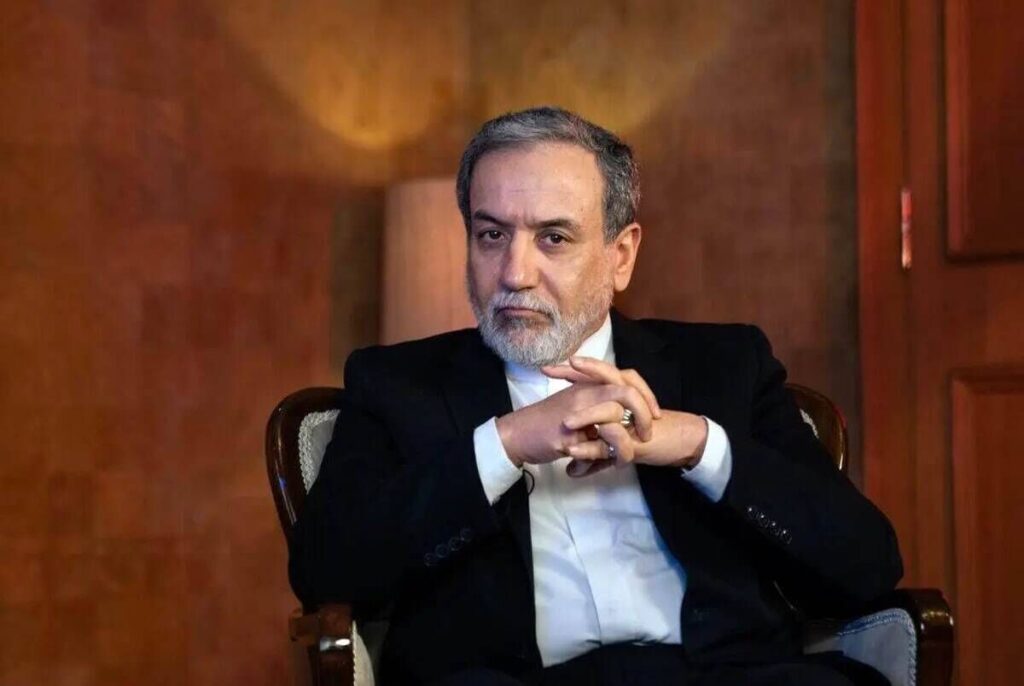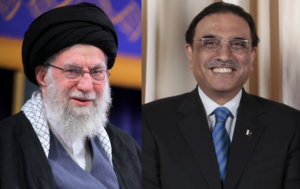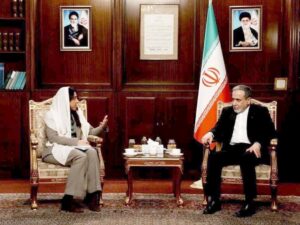Iran to Reshape Diplomatic Strategy in Response to U.S. and Israeli Aggression: FM Araqchi

Tehran, The Gulf Observer: Iranian Foreign Minister Abbas Araqchi has announced that Iran’s diplomatic strategy will undergo significant changes in response to recent military aggressions by the United States and the Israeli regime. His remarks came during a televised interview aired late Thursday, where he outlined the country’s evolving foreign policy following recent attacks targeting Iran.
Araqchi criticized the U.S. for abandoning diplomacy and allowing the Israeli regime to launch strikes on Iranian soil. “In the indirect negotiations, we firmly defended the rights of the Iranian people, but when the American side failed to achieve its objectives, it turned to war and enabled the Israeli regime’s aggression,” he said, calling the move a “betrayal of diplomacy.”
The Foreign Minister stressed that this experience would influence Iran’s future diplomatic decisions and approach. “The conditions after the war differ fundamentally from those before it. Our foreign policy must now reflect the new realities,” he added.
He praised the Iranian people’s resilience and noted that, as reiterated by the Leader of the Islamic Revolution Ayatollah Seyyed Ali Khamenei, Iran will continue to defend its positions with resolve and will not surrender to foreign pressures.
Addressing speculation about potential talks with the U.S., Araqchi clarified that there is currently no agreement or plan to resume negotiations. He underscored that any such decision would be based solely on Iran’s national interests and the welfare of its people. “While we remain committed to diplomacy, the situation has changed, and we are reassessing all options,” he said.
Araqchi also highlighted the damage inflicted on Iran’s nuclear facilities during the attacks, noting that the issue of compensation has become central to Iran’s future demands. “These attacks have not only caused physical destruction but have altered the context and content of our diplomatic engagements,” he explained.
Referring to the broader impact of the war, Araqchi stated that Iran’s diplomacy will now reflect a “renewed understanding of different countries’ positions,” and a new approach will be adopted accordingly.
The remarks followed the June 13 unprovoked assault by the Israeli regime on Iran, targeting military, nuclear, and civilian facilities. The attacks killed over 600 people, including high-ranking commanders, scientists, and civilians.
In swift retaliation, Iran’s Islamic Revolution Guards Corps (IRGC) Aerospace Force launched Operation True Promise III, delivering 22 waves of missile strikes that caused significant damage across occupied territories.
A ceasefire came into effect on June 24, halting hostilities for the time being. However, Araqchi made clear that the consequences of the conflict will shape the Islamic Republic’s foreign policy trajectory in the months to come.


